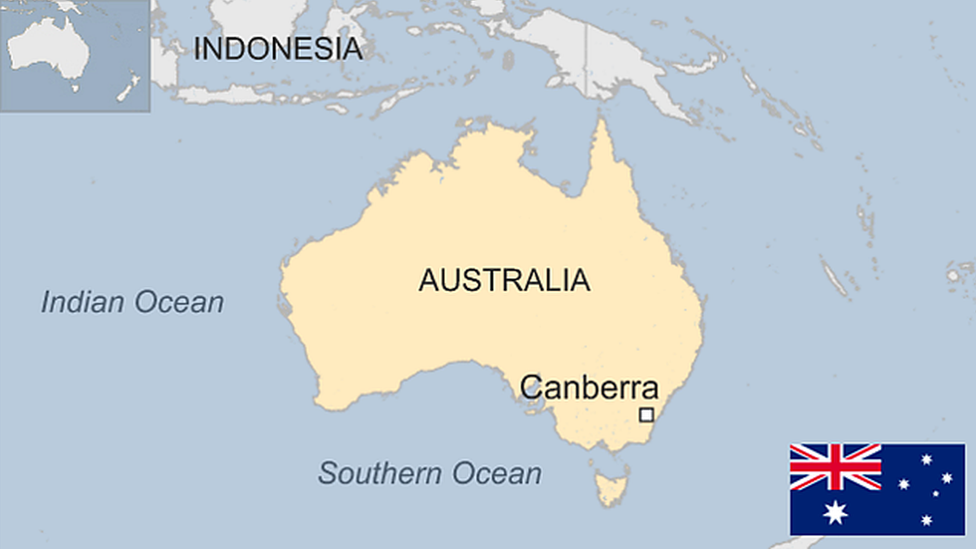Solomon Islands country profile
- Published
This page is no longer being updated. It was last updated on 21 May 2024

The Solomon Islands chain consists of several large volcanic islands to the south-east of Papua New Guinea, as well as outlying islands and atolls. The terrain is mountainous and heavily forested.
More than 90% of the islanders are ethnic Melanesians, but there has been intense and bitter rivalry between the Isatabus on Guadalcanal, the largest island, and migrant Malaitans from the neighbouring island.
The former British protectorate is striving to recover from civil unrest between the groups in 1998-2003 that brought it to the brink of collapse.
An Australian-brokered peace deal was signed in 2000 but lawlessness continued and an Australian-led multinational peacekeeping force deployed to the islands between 2003-2017.
During World War Two, the island of Guadalcanal saw some of the fiercest fighting in the Pacific theatre as the US battled to wrest control of the territory from Japanese occupiers.
See more country profiles, external - Profiles by BBC Monitoring, external
SOLOMON ISLANDS: FACTS
Capital: Honiara
Area: 28,400 sq km
Population: 707,800
Language: English
Life expectancy: 62 years (men) 67 years (women)
LEADERS
Head of state: King Charles III, represented by a governor-general
Prime minister: Jeremiah Manele
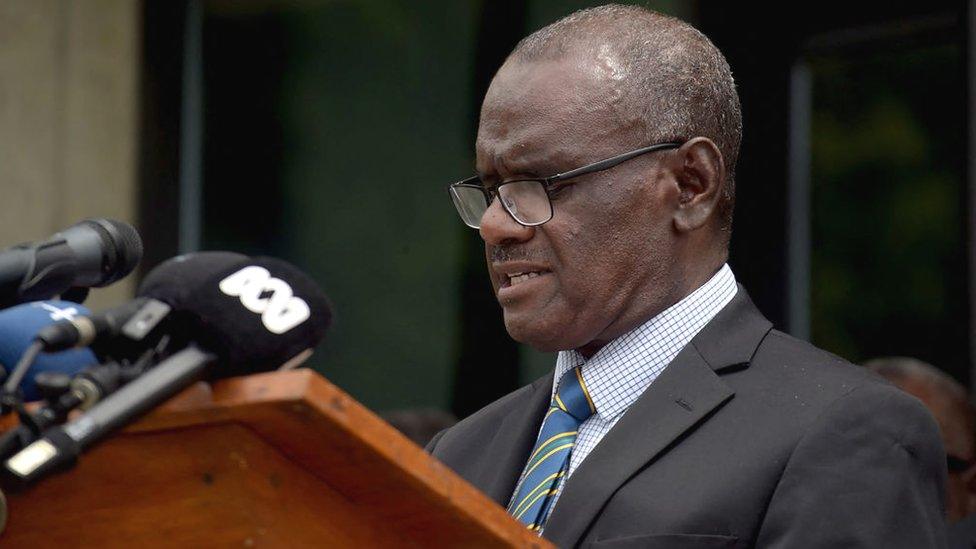
Jeremiah Manele became prime minister in May 2024, succeeding Manasseh Sogavare, a vocal critic of the West.
Mr Manele was foreign minister in 2019, when the Solomons chose to switch its longstanding diplomatic recognition of Taiwan to China - a move that shocked regional neighbours.
He has already indicated that he will continue the nation's close ties with China - including the island's secretive defence and security pact. Opposition candidates had suggested the deal could be revoked, or at the very least have its full details disclosed to the public.
But analysts also expect Mr Manele to take a less confrontational approach to the Solomons' traditional Western partners like Australia than his predecessor. He is also seen as a more diplomatic communicator.
MEDIA
The Solomon Islands Broadcasting Corporation (SIBC) operates a public radio service. A high rate of illiteracy means that radio has a greater reach than the press.
Australia has donated equipment to SIBC and has sponsored programmes aimed at promoting peace. Press freedom is generally respected, says US-based Freedom House.
Read full media profile
TIMELINE

Some key dates in the history of the Solomon Islands:
30,000-28,000BC - Solomons are first settled by people coming from the Bismarck Islands and New Guinea during the Pleistocene era.
1200-800BC - Austronesian Lapita people began arriving from the Bismarcks.
1568AD - Spanish navigator Álvaro de Mendaña de Neira is first European to visit the islands.
1595 - Mendaña leads Spanish attempt to establish a settlement, which fails due to poor relations with the local peoples and disease among the colonists.
1840-1890 - Solomon Islanders are recruited or often kidnapped) as labourers for the colonies in Australia, Fiji and Samoa in a process known as "blackbirding". Workers are often exploited and local islanders often violently attack Europeans arriving on their island.
1840-1890 - Solomon Islanders are recruited or often kidnapped) as labourers for the colonies in Australia, Fiji and Samoa in a process known as "blackbirding". Workers are often exploited and local islanders often violently attack Europeans arriving on their island.
1884 - Germany annexes north-east New Guinea and the Bismarck Archipelago.
1886 - Germany extends its rule over the northern Solomons, including Bougainville, Buka, Choiseul, Santa Isabel, the Shortlands and Ontong Java atoll.
1893 - Britain declares a protectorate over the southern Solomons, including New Georgia, Malaita, Guadalcanal, Makira, Mono island and the central Nggela islands.
1898/99 - Britain expands its protectorate to cover the Rennell and Bellona islands, Sikaiana, Santa Cruz islands and others.
1899 - Tripartite Convention: Germany cedes the northern Solomons to Britain, except Buka and Bougainville which are added to its territory of German New Guinea.
1914-18 - Germany loses all its Pacific possessions during World War One
1942-45 - During World War Two the islands are occupied by Japan. There is very heavy fighting, especially on and around Guadalcanal. The Japanese are forced from the islands by the Allies in 1945, and British rule is restored.
1945-50 - Former World War Two Solomon Islands Labour Corp members set up Maasina Ruru, an emancipation movement for self-government and self-determination in the islands. The campaign is marked by non-compliance and civil disobedience. The name is from the 'Are'are language meaning the Rule of "relationship of siblings together".
1960 - Britain sets up legislative councils to give islanders some control over home affairs.
1970 - A single governing council is created.
1974 - Pressure sees role of the British governor much reduced, a new constitution and the creation of the post of chief minister.
1976 - The islands become fully self-governing, a year after the independence of neighbouring Papua New Guinea from Australia.
1978 - Solomon Islands become independent.
1988-98 - Separatist rebels on neighbouring Bougainville begin prolonged armed struggle against the Papua New Guinea government. This sees refugees fleeing to the Solomons and leads to tensions with Papua New Guinea as PNG forces frequently enter Solomons territory in the pursuit of rebels.
1998-2003 - Crisis - referred to locally as "the tensions" - sees fighting between militants from Guadalcanal island and the island of Malaita. The country's economy collapses, sparking widespread lawlessness.
2003-2017 - Over 2,000 Australian and Pacific Islands police and troops deploy to the islands as part of the Australian-led Regional Assistance Mission to Solomon Islands, in order to help stabilise the nation.
2022 - Solomon Islands signs security agreement with China. The agreement is not officially published, but leaked details, external reveal provisions for Chinese personnel to assist in maintaining social order and providing humanitarian aid.
2023 - In response to China's overtures to the islands, the US reopens an embassy on the Solomons after a 30-year absence.
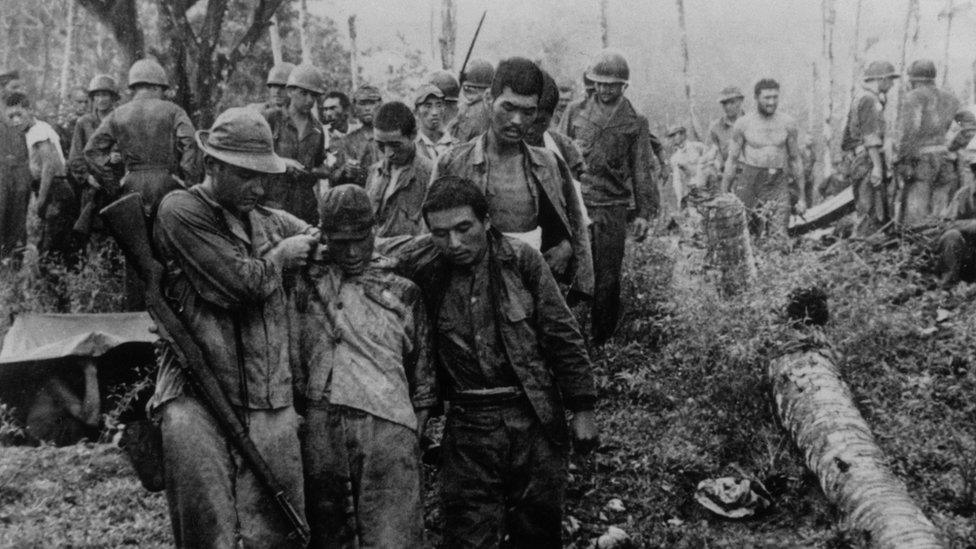
Guadalcanal saw fierce fighting between Allied and Japanese troops
Related topics
- Published19 December 2023
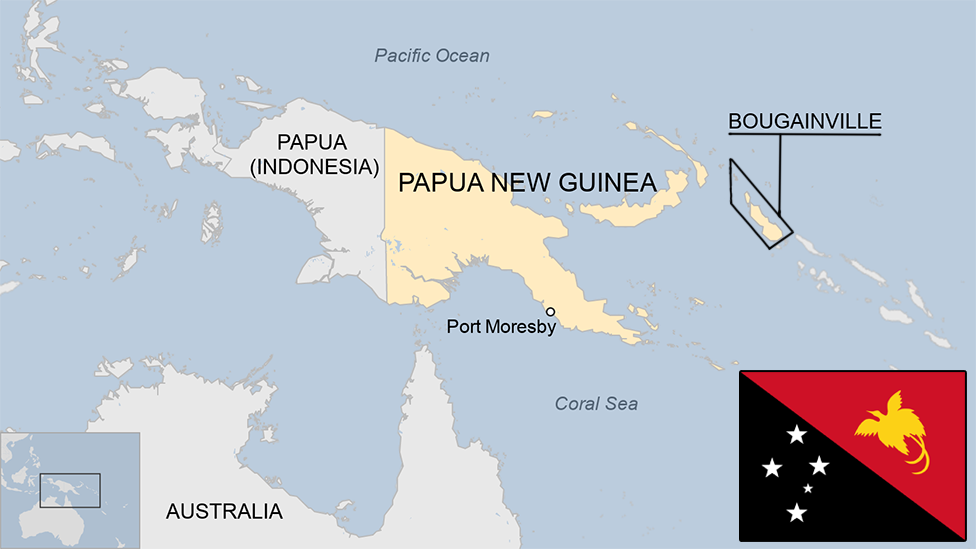
- Published27 October 2023
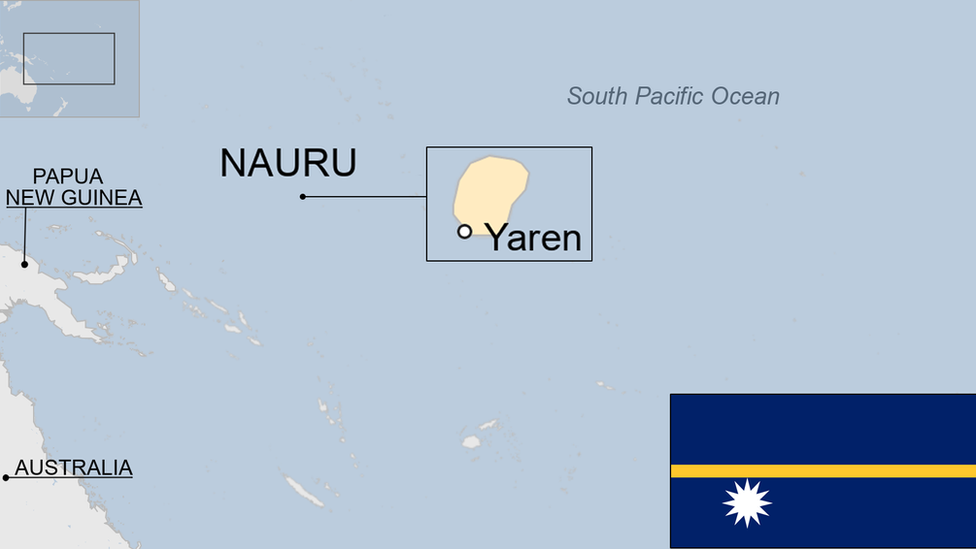
- Published26 February 2024

- Published23 August 2023
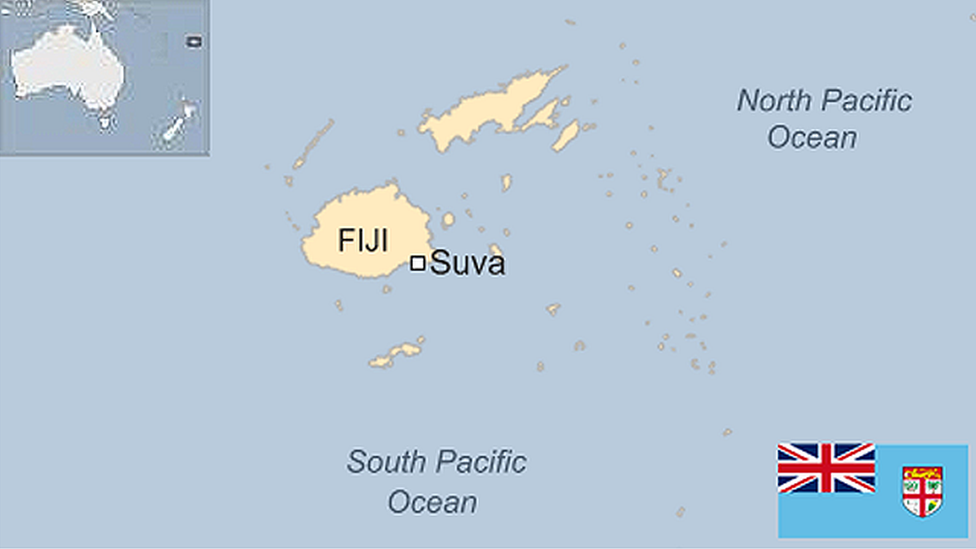
- Published27 October 2023

- Published24 May 2024
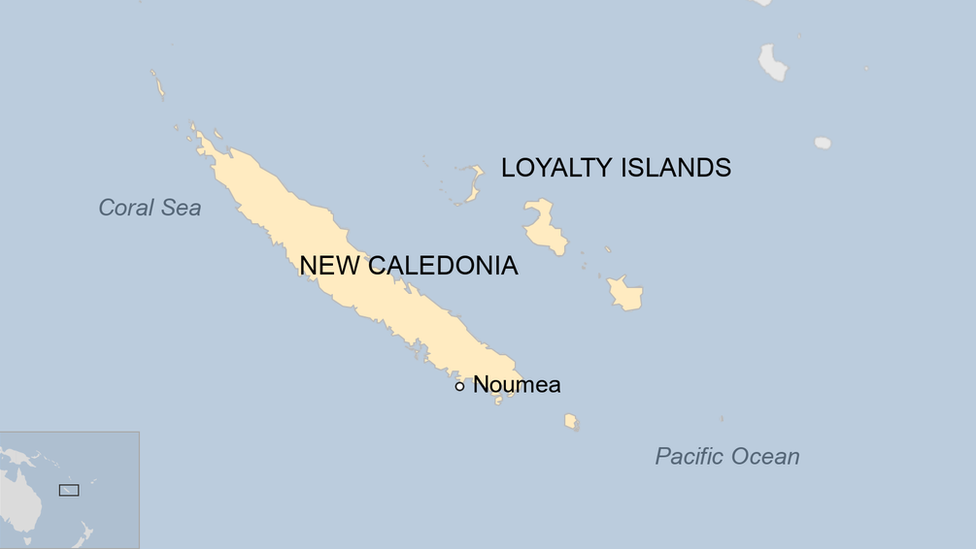
- Published14 April 2023
